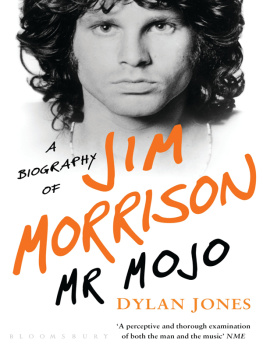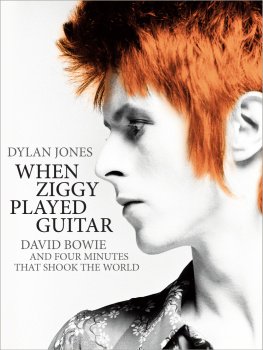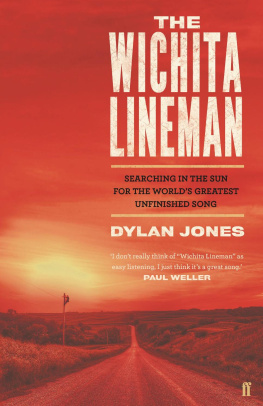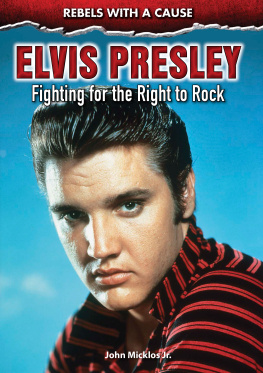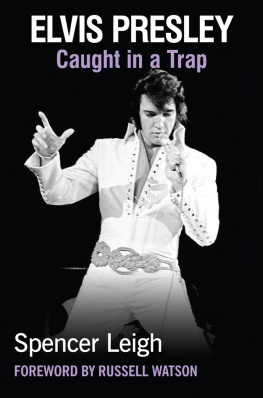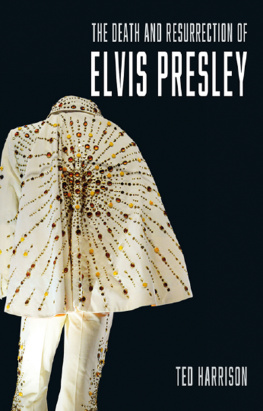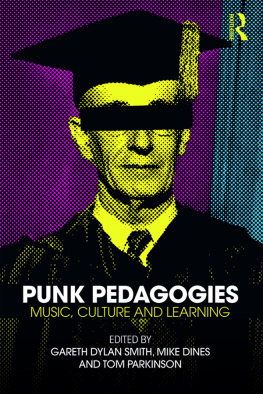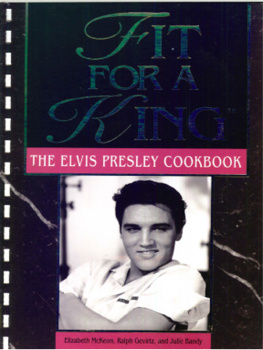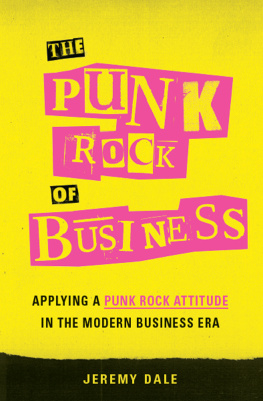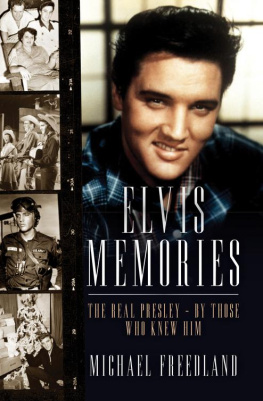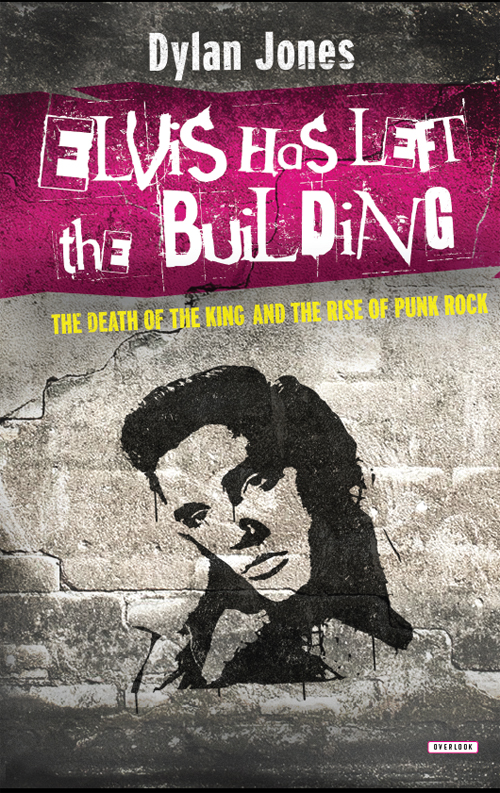First published in the US and the UK in 2014 by
Overlook Duckworth
NEW YORK
141 Wooster Street
New York, NY 10012
www.overlookpress.com
For bulk and special sales please contact , or write to us at the above address.
LONDON
30 Calvin Street, London E1 6NW
T: 020 7490 7300
E:
www.ducknet.co.uk
For bulk and special sales please contact , or write to us at the above address.
2014 by Dylan Jones
All rights reserved. No part of this publication may be reproduced, stored in a retrieval system, or transmitted, in any form or by any means, electronic, mechanical, photocopying, recording or otherwise, without the prior permission of the publisher.
ISBN 978-1-4683-1042-9
The Eighties: One Day, One Decade
From The Ground Up
When Ziggy Played Guitar:
David Bowie And Four Minutes That Shook The World
The Biographical Dictionary Of Popular Music
British Heroes In Afghanistan (with David Bailey)
Cameron On Cameron: Conversations With Dylan Jones
Mr. Jones Rules For The Modern Man
iPod Therefore I Am: A Personal Journey Through Music
Meaty Beaty Big & Bouncy
Sex, Power & Travel
Ultra Lounge
Paul Smith: True Brit
Jim Morrison: Dark Star
Haircults
For Tony Parsons
From the Roxy to eternity, and back again
He lives. We live. He lives.
John Updike, from Jesus and Elvis
Elvis Presley is like the Big Bang of RocknRoll.
It all came from there Bono
The phrase Elvis has left the building was used for the first time on December 15th, 1956, by the promoter Horace Lee Logan, telling the crowd at his Louisiana Hayride, broadcast from the Shreveport Municipal Memorial Auditorium, that the young star had left the premises through the stage door. This night, like so many nights in future, Elvis was accompanied by his police escort. He had played the Hayride two years previously, but now he was a massive star, and needed all the protection he could get. What Logan actually said was: All right, all right, Elvis has left the building. Ive told you absolutely straight up to this point, you know that he has left the building; he left the stage and went out the back with the policeman and he is now gone from the building.
Logan was not in fact trying to get the crowd to leave, but to persuade them to stay and see the rest of the acts on the bill. After Elvis had given his final encore and left the stage, the crowd rushed for the exits, even though many other Hayride acts were still waiting to perform. Logan didnt want them traipsing round the back hoping to get a glimpse of the new boy.
Please, young people, he continued over the tannoy, in desperation. Elvis has left the building. He has gotten in his car and driven away Please take your seats. Later, the phrase would be used as a way to clear a room, to encourage people to leave, but this first time that wasnt the case at all.
Even back then Elvis Presley was trouble.
That December night turned out to be the last time Elvis would ever play the Hayride. His manager, Colonel Tom Parker, had just bought out his contract, and Elviss show there was never broadcast on the KWKH radio station again.
Elvis has left the building
Throughout Elviss Las Vegas years, indeed any time he played a concert, the words would be delivered, matter-of-factly, after the encore, in order to calm the crowd down, or to get them to pick up their bags and their drinks and their posters and go home. Sometimes it was the MC, sometimes a backing singer, and quite often the promoter. But it was always said. It became the punchline to a thousand different jokes, some verbal punctuation, while baseball announcers on radio and television used the phrase as a way to signal a home run. When singing the closing theme to the television series Frasier, Kelsey Grammer would sometimes follow the last line with his own version: Frasier has left the building.
As the Chicago Readers Straight Dope column once put it, the meaning is clear to all: the shows over, the curtain has fallen, the sun has set, thats all she wrote, the fat lady has sung, our work here is done, move along, nothing more to see so long, hasta la vista, you dont have to go home but you cant stay here Scotty, beam me up.
The fateful words were said for the last time at the end of Elviss final performance, in Indianapolis on June 26th, 1977. On August 16th that year, Elvis left the building forever.
Like the murders of JFK and RFK, or the deaths of Marilyn Monroe, John Lennon or Kurt Cobain, Elvis Presleys death is etched in our collective memory. Whether were fans or not. Everyone over a certain age can remember exactly where they were when they found out that Elvis was dead. For over twenty years, since the birth of rocknroll in 1956, Elvis had been part of the very fabric of American life. He was an object of desire and worship the whole world over. A life without Elvis was unthinkable, unimaginable. Yet the news was incontrovertible: on August 16th, 1977 he was pronounced dead, having been rushed to the Baptist Memorial Hospital in Memphis.
We still feel his death today. A 2004 Samaritans survey of Britains most emotional memories, for example, placed Elviss death at No.20, after events such as the fall of the Berlin wall, Neil Armstrong walking on the moon and the 9/11 attacks.
One man, who was barely ten at the time, remembered the moment vividly. Id been playing in the garden and when I came inside I found my mother sitting on the stairs, crying. Id never seen her cry before. I asked her what was wrong. She said, Elvis is dead.
My parents sat me down with very serious looks on their faces, recalled a similarly young fan. My grandfather, who I didnt know very well, was ill so I assumed they were going to tell me he had died. When they said it was Elvis who had died, I was completely distraught and wished it had been my grandfather
In the words of another, I was working as a lifeguard at an outdoor swimming pool in British Columbia. I was on the deck and another lifeguard, who was [another] huge Elvis fan, came running out of the guard shack waving his arms, yelling, Elvis is dead! I remember the pool, which was very busy, fell really quiet.
According to a British devotee, I was fixing a TV set and listening to Capital Radio late in the evening. I was just wondering why theyd played several Elvis songs in a row when the DJ announced, The King is dead. All of the pop stations played nothing but Elvis for the rest of the evening.
As for me, I heard the news sitting in the saloon bar of the Nags Head pub on London Road in High Wycombe, Buckinghamshire, where most of the punk bands in the area played at the time. The Nags Head was owned by Ron Watts, who also ran the 100 Club in Oxford Street, and everyone who played there played here. I was just seventeen. As the news spread around the bar, a couple of people appeared to cheer half heartedly, although after some stern looks from the barmen, mostly there was hush. Without access to anything other than secondhand information, the rest of the evening was spent in speculation. If it really was true, how exactly had he died? Was he alone? Was he naked? Was it true that it was a drug overdose? Could it have been suicide? I had just finished a dry run of packing for an imminent move to London, to Chelsea, and was about to start a new life. I wasnt an Elvis fan, but this was monumental news, and my friends and I spent most of the evening absorbing its impact. If I recall correctly, that largely involved repeating the fact that Elvis was actually dead, Fucking dead, over and over again.


